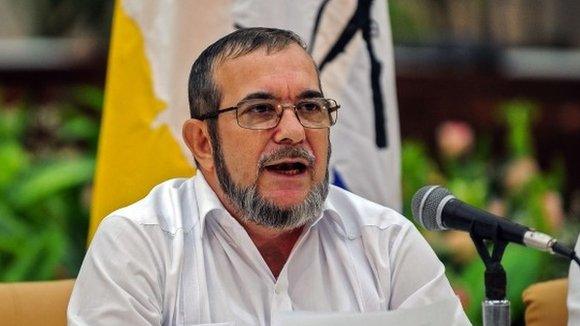Colombia ELN: Government and rebels to hold peace talks
- Published
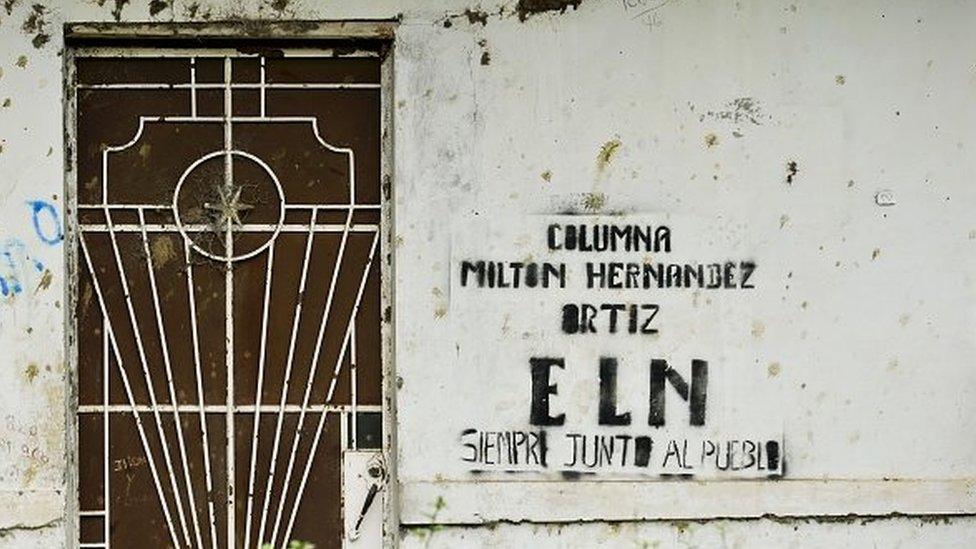
The ELN rebels have historically had their strongholds in rural areas
Colombia has announced it is starting formal peace talks with the country's second largest rebel group, the National Liberation Army (ELN).
Government and ELN negotiators made the announcement in the Venezuelan capital, Caracas, where the two sides have been holding informal talks.
The two sides have been engaged in a five-decade-long conflict.
The announcement came as the government is nearing a final peace deal with Colombia's largest rebel group, Farc.
A joint statement was read by the former peace commissioner Frank Pearl and ELN rebel Antonio Garcia at the Venezuelan foreign ministry in Caracas.
The two sides said they had agreed on a six-point agenda for the formal peace talks which will start in the Ecuadorean capital, Quito.
However, the venue of the talks is likely to move to Brazil and Chile, among other places.

Analysis: Natalio Cosoy, BBC Mundo, Bogota
It was suggested that the negotiations between the government and the ELN stalled because the two sides could not agree on the place where the dialogue should take place.
Finally, they ended up with a complex agreement involving six countries.
That will certainly complicate the logistics of the negotiations and may end up causing delays.
But it seems that it was the only way of driving forward the peace process with the second largest guerrilla group in Colombia.

The issues to be discussed include how the rebels will lay down their arms and how they can take part in Colombian politics once a peace deal has been reached.
Colombian President Juan Manuel Santos welcomed the announcement, saying the ELN rebels "could and should play a part in the creation of peace" in Colombia.
"From the start of my time in office I have said that we have to put an end to this conflict, and if the ELN joins in with these efforts, then we'll have a more stable and lasting peace, which is what all Colombians want," he said in an address on national TV.
An estimated 220,000 people have died in Colombia in violence between the security forces, left-wing rebels and right-wing paramilitary groups since the conflict began in 1964.

ELN
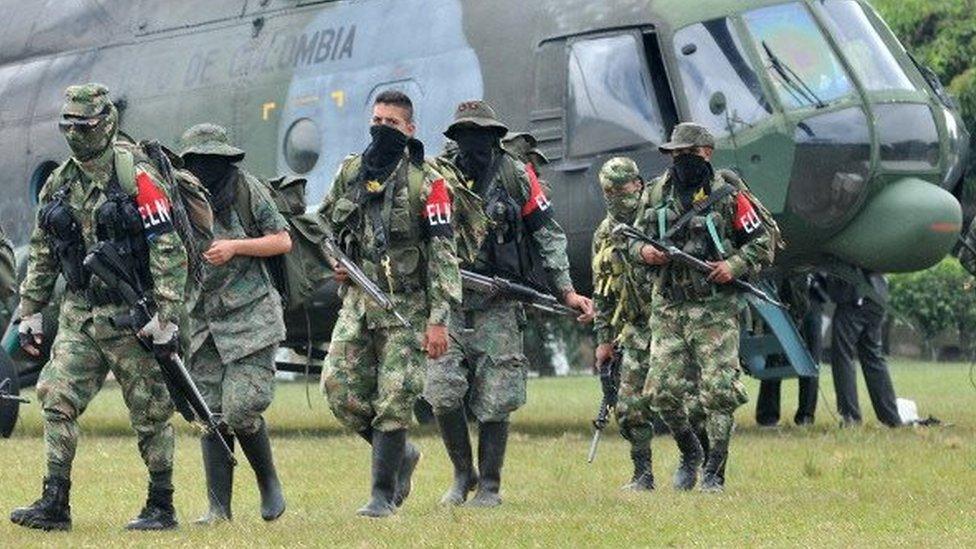
The number of ELN fighters has dwindled over the years with some demobilising and others being captured or killed
Founded in 1964 as a Marxist guerrilla group to fight Colombia's unequal distribution of land and riches
Has some 1,300 active fighters, according to recent government estimates
Strongholds in the provinces of Arauca, Narino and Norte de Santander
Financed by extortion, drug trafficking and kidnappings for ransom

The ELN and the government have been holding exploratory talks for more than two years in Ecuador, Brazil and Venezuela.
However, a number of ELN attacks and kidnappings have until now thwarted progress.
At the beginning of February, the head of the Colombian government delegation, Frank Pearl, warned the rebel group that "their time to reach a political solution to the armed conflict in Colombia is running out".
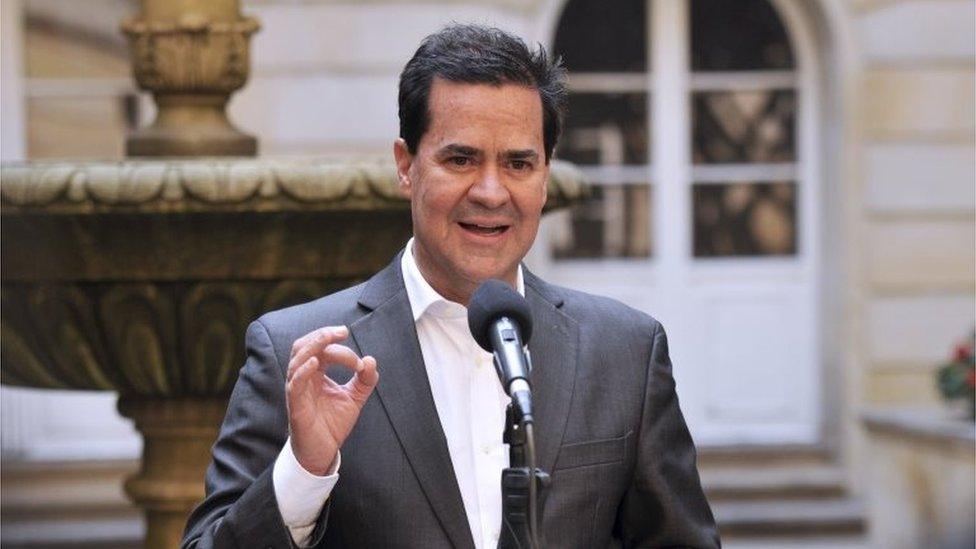
Frank Pearl told the ELN in February that it was running out of time
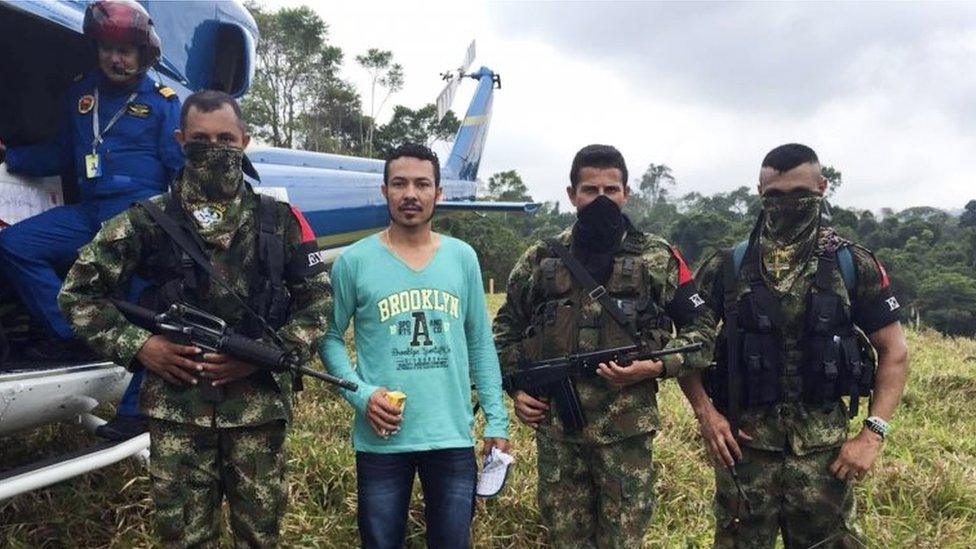
ELN rebels released a Colombian soldier (third from right) they were holding hostage on 20 March
In the past weeks, the ELN released two of the hostages it was holding, paving the way for the announcement.
The ELN was founded in 1964 and inspired by the Cuban revolution of 1959.
One of its key figures was the priest Camilo Torres.
Since 1998, the ELN has been led by Nicolas Rodriguez Bautista, better known by his alias, Gabino.
Some of the most violent attacks by the ELN happened in the late 1990s.
In October 1998, 84 people were killed when the ELN blew up an oil pipeline in Antioquia province.
The group has also kidnapped and ambushed members of the security forces and local businessmen.
Last year, 11 soldiers and a policeman were killed in an ambush as they were transporting ballot boxes following local elections.
- Published28 February 2016
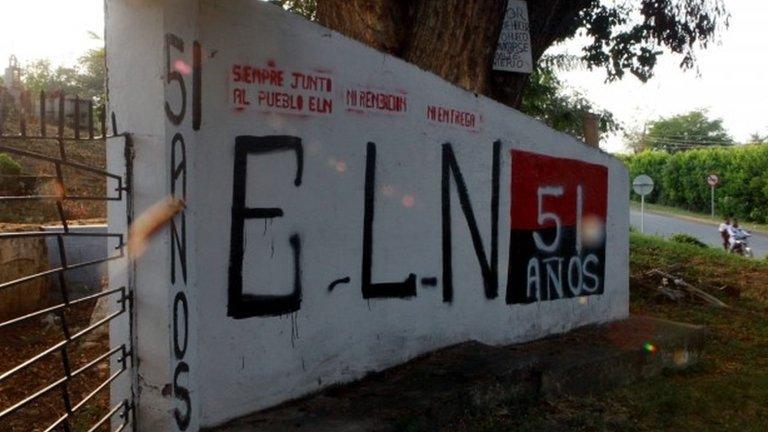
- Published9 February 2016
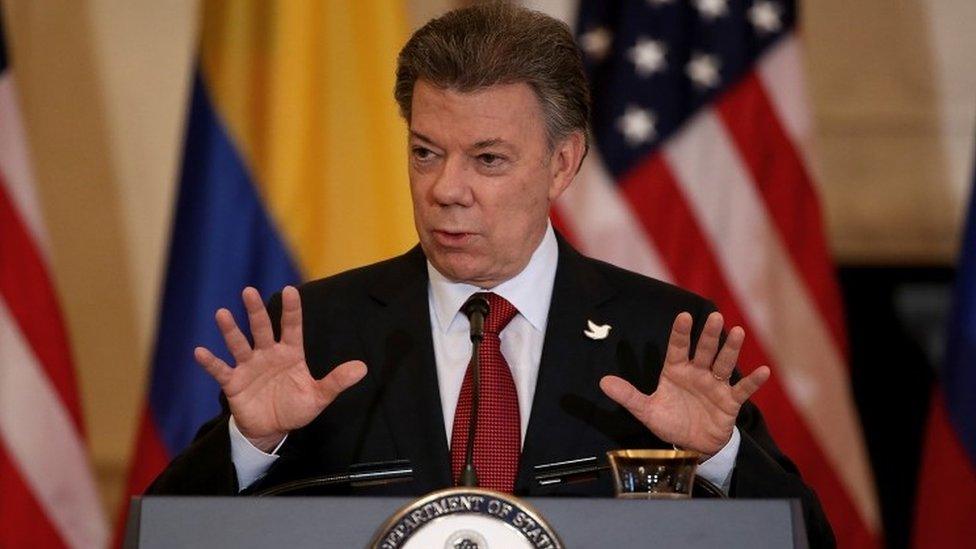
- Published27 October 2015
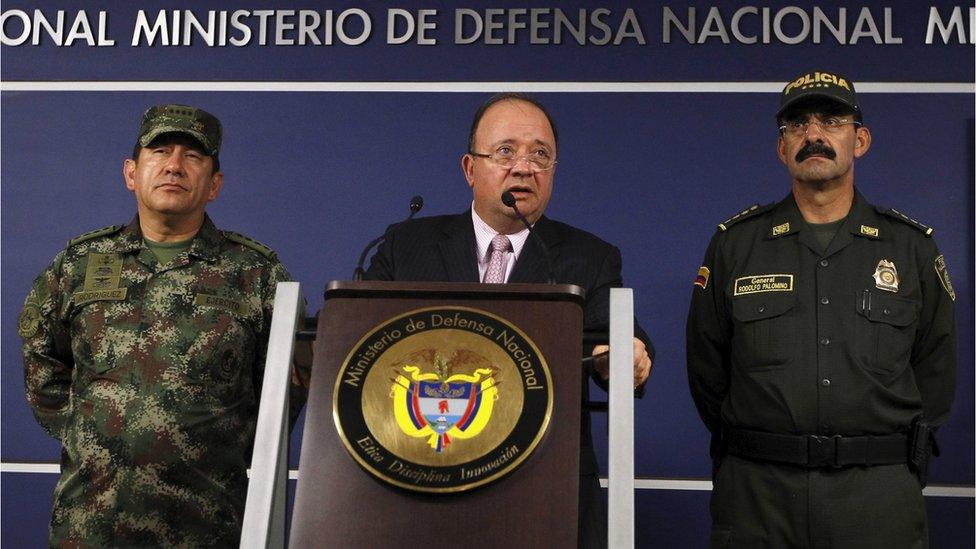
- Published24 September 2015
